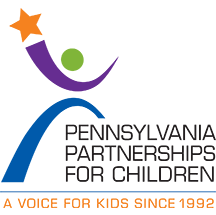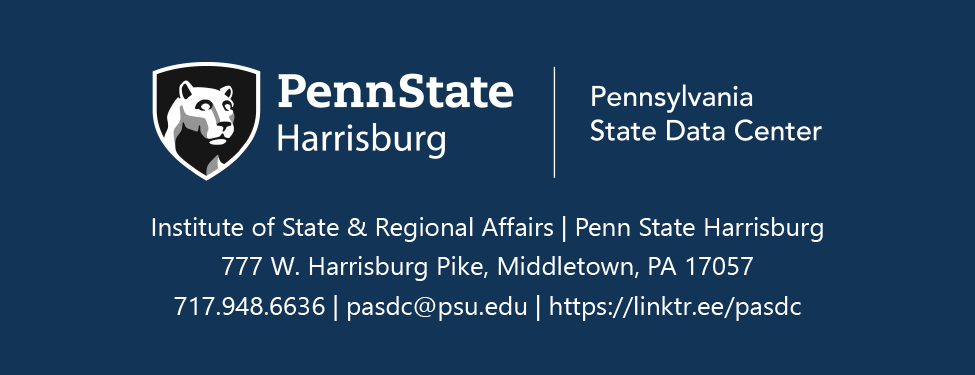- CMS: Medicare Program; Implementation of Prior Authorization for Select Services for the Wasteful and Inappropriate Services Reduction (WISeR) Model
- Public Inspection: CMS: Medicare Program: Implementation of Prior Authorization for Select Services for the Wasteful and Inappropriate Services Reduction Model
- CMS: Secretarial Comments on the CBE's (Battelle Memorial Institute) 2024 Activities: Report to Congress and the Secretary of the Department of Health and Human Services
- HHS: Patient Protection and Affordable Care Act: Marketplace Integrity and Affordability
- HRSA Announces Action to Lower Out-of-Pocket Costs for Life-Saving Medications at Health Centers Nationwide
- Public Inspection: HHS: Patient Protection and Affordable Care Act: Marketplace Integrity and Affordability
- Increased Risk of Cyber Threats Against Healthcare and Public Health Sector
- Eight Hospitals Selected for First Cohort of Rural Hospital Stabilization Program
- Announcing the 2030 Census Disclosure Avoidance Research Program
- CMS: Medicare Program; Hospital Inpatient Prospective Payment Systems for Acute Care Hospitals and the Long-Term Care Hospital Prospective Payment System and Policy Changes and Fiscal Year 2026 Rates; Requirements for Quality Programs; and Other Policy Changes; Correction
- CMS: Medicare Program; Hospital Inpatient Prospective Payment Systems for Acute Care Hospitals and the Long-Term Care Hospital Prospective Payment System and Policy Changes and Fiscal Year 2026 Rates; Requirements for Quality Programs; and Other Policy Changes; Correction
- CMS: Medicare and Medicaid Programs; Contract Year 2026 Policy and Technical Changes to the Medicare Advantage Program, Medicare Prescription Drug Benefit Program, Medicare Cost Plan Program, and Programs of All-Inclusive Care for the Elderly; Correction
- CMS: Medicare and Medicaid Programs; Contract Year 2026 Policy and Technical Changes to the Medicare Advantage Program, Medicare Prescription Drug Benefit Program, Medicare Cost Plan Program, and Programs of All-Inclusive Care for the Elderly; Correction
- CMS: Medicare Program; Prospective Payment System and Consolidated Billing for Skilled Nursing Facilities; Updates to the Quality Reporting Program for Federal Fiscal Year 2026
- CMS: Medicare Program; FY 2026 Hospice Wage Index and Payment Rate Update and Hospice Quality Reporting Program Requirements
USDA Awards Two Housing Preservation Grants in Pennsylvania

U.S. Department of Agriculture (USDA) Rural Development State Director Bob Morgan announced two Housing Preservation Grant or HPG project awards.
The two projects were awarded to Safe Housing Inc. and DON Enterprises Inc. for a total of $551,524. The projects will support more than 36 homes across five counties in Pennsylvania. The HPG program provides grants to sponsor organizations for the repair and rehabilitation of housing owned or occupied by low- and very-low-income rural citizens.
“The Biden-Harris Administration and USDA are making record investments in rural America to ensure everyone in this country has a path to success,” Morgan said. “The investments we’re making today will have lasting economic and social benefits that will allow current and future generations to make a good life right at home in their rural communities.”
The investments are part of President Biden’s commitment to advance equity for all, including those who have been historically underserved, marginalized and adversely affected by persistent poverty and inequality.
Safe Housing Inc.’s grant of $275,762 will be used to conduct housing rehabilitation of owner-occupied low and very low-income residents in eligible areas of Adams County, Pennsylvania. They plan to repair six houses within Adams County. Grant funds will be used to remove health and safety hazards, correct code violations, and/or improve accessibility, if needed. The funds are an essential tool to assist folks, in Adams County, to maintain their homes. This project will help ensure that low and very low-income homeowners have a safe and decent home in which to live.
DON Enterprises Inc.’s grant of $275,762 will be used to conduct housing rehabilitation of owner-occupied low and very low-income residents in eligible areas. DON Enterprises, Inc. plans to repair 30 houses within Beaver, Butler, Lawrence, and Mercer counties in Pennsylvania. Grant funds will be used to remove health and safety hazards, correct code violations, and/or improve accessibility if needed. The funds are an essential tool to help folks, in counties served by DON Enterprise, Inc., to maintain their homes. These funds will go a long way to ensure that low and very low-income homeowners have a safe and decent home in which to live.
2022 National Survey on Drug Use and Health Released
The Substance Abuse and Mental Health Services Administration (SAMHSA) has released the results of their 2022 National Survey on Drug Use and Health and a companion infographic report (PDF). Findings include that more than 23% of adults aged 18 or older had any mental illness in the past year (59.3 million), with 6% suffering from serious mental illness (15.4 million). Among adolescents aged 12 to 17, nearly 20% (4.8 million) had a major depressive episode in the past year.
Reimagining Primary Care
It’s getting tough to get a doctor’s appointment these days. That’s a frustration for patients and a policy challenge Washington is trying to solve. Both Congress and the Biden administration are reimagining primary care to better serve patients. Sen. Bernie Sanders (I-Vt.), chair of the Senate panel responsible for the nation’s health care, has proposed legislation with Kansas Republican Sen. Roger Marshall that envisions a system in which more people would receive care at community health centers. Read more.
2022 Saw Increase in Number of Uninsured Children in Pennsylvania

The number of uninsured children in the state increased from 2021 to 2022, according to a report by the Pennsylvania Partnerships for Children. The rate of children in Pennsylvania without health insurance increased significantly from 4.4% to 5.2%, despite Medicaid enrollees having uninterrupted access to health insurance that connects them to doctor visits, immunizations, and well-visits that screen for physical and mental health. The finding was included in the partnership’s State of Children’s Health report. Based on the data, Pennsylvania has the fifth highest number of uninsured children in the nation. Learn more.
2022 ACS 5-Year Data Now Available

The 2018-2022 ACS Five-Year Estimates are now available from the U.S. Census Bureau. These estimates provide data for all Pennsylvania counties, municipalities, and other geographic areas regardless of population size. Our latest brief explores trends in language, poverty, and the foreign-born population. For instance, did you know that 50 percent or more of the population age 5 to 17 years old speak Spanish in twenty-two Pennsylvania counties? Click here to read the brief.
To read more about trends at the national level, click here to read the Bureau’s news release.
Additional Data Releases
The Census Bureau is set to release ACS, 5-year Public Use Microdata Sample (PUMS) files and Variance Replicate Estimate (VRE) tables on January 25, 2024. To view the complete release schedule, visit the data year 2022 release schedule. For more information on ACS topics, visit the Subjects Included in the Survey. To access the full set of statistics released today, visit data.census.gov.
Reminder: Proposed 2025 ACS and PRCS Content Changes
The Census Bureau is inviting public feedback through a Federal Register notice on proposed changes to the 2025 American Community Survey (ACS) and Puerto Rico Community Survey (PRCS). The proposed content for the 2025 ACS and PRCS reflects changes to content and instructions that were recommended as a result of the 2022 Content Test. The Census Bureau periodically conducts tests of new and revised survey content to ensure the ACS and the PRCS meet the data needs of stakeholders.
The changes proposed for 2025 cover several topics: household roster, educational attainment, health insurance coverage, disability, and labor force questions. Additionally, three new questions are proposed to be added to the ACS and the PRCS on solar panels, electric vehicles, and sewage disposal.
The public may submit comments through 11:59pm ET on December 19, 2023.
Pennsylvania Rural Health Advocate Receives Individual Innovative Oral Health Champion Award
Kelly Braun, RDH, MSDH, rural primary care and integration coordinator at the Pennsylvania Office of Rural Health (PORH), received the 2023 Individual Innovative Oral Health Champion Award from the PA C oalition for Oral Health (PCOH). The award was presented on Nov. 17 at a ceremony held in Harrisburg, PA, during the 2023 Pennsylvania Oral Health Summit.
oalition for Oral Health (PCOH). The award was presented on Nov. 17 at a ceremony held in Harrisburg, PA, during the 2023 Pennsylvania Oral Health Summit.
The Individual Innovative Oral Health Champion Award recognizes an individual who has demonstrated notable efforts on behalf of oral health progress in Pennsylvania and who, through innovative and outstanding contributions, has improved oral health in Pennsylvania at the local, regional or state levels.
In her position with PORH, Braun leads technical assistance activities for Rural Health Clinics (RHC) in Pennsylvania and rural health care integration, with a special emphasis on oral health. She is a registered dental hygienist and a public health dental hygiene practitioner.
The nomination, submitted by Eve Kimball, MD, a pediatrician from Wyomissing, PA, who serves as the secretary of the PCOH Board of Directors, lauded Braun for epitomizing the qualities inherent in great leaders: integrity, honesty, humility, passion, clear focus and drive for excellence. Since joining PORH in 2016, Braun has focused her passions for oral and rural care to advance the health status in rural Pennsylvania, other states and across the nation, Kimball noted.
Braun’s significant contributions to rural health services include launching a primary care/oral health integration model that is now the “Gold Standard” for other states implementing similar programs. Braun provided extensive input into the development of the Pennsylvania Oral Health Plan and the 2024-2028 Pennsylvania Rural Health Plan. She provides input into oral health legislation in the state and led a research project that compared the oral health status of rural and urban low-income Pennsylvania children.
Technical assistance on oral health issues given to the National Rural Health Association resulted in a robust national policy brief on the implications of oral health on health status.
Braun extends her knowledge of oral health through continuing education programs for health care providers, including community health workers and clinics across the state; promoting oral health screenings in K-12 settings with school nurses; and serving as a mentor to other states seeking to integrate oral health and primary care. She utilizes her clinical skills as a public health dental hygienist by volunteering at oral health “pop up clinics” across the state.
Finally, Braun has created significant credibility for PORH as a trusted source of oral health technical assistance and information and facilitated expanded collaborations with PCOH and the broader oral health community in the state and nationally.
On receiving the award and recognition, Braun said, “This work would not be possible without the support of amazing partners from across the state of Pennsylvania and beyond. Collaboration has truly been the key to success.”
The PA Coalition for Oral Health is a diverse group of leaders from across the state from schools of public health, philanthropic organizations, businesses, dental organizations, health insurance firms, advocacy organizations, state agencies and other champions. More information is available at paoralhealth.org.
PORH was formed in 1991 as a partnership between the federal government, the Commonwealth of Pennsylvania and Penn State. The office is one of 50 state offices of rural health in the nation and is charged with being a source of coordination, technical assistance, networking and partnership development.
PORH provides expertise in the areas of rural health, population health, quality improvement, oral health and agricultural health and safety. PORH is administratively located in the Department of Health Policy and Administration in the College of Health and Human Development at Penn State University Park. Visit porh.psu.edu to learn more.
Rural Oral Health Needs Report Released
 The CareQuest Institute for Oral Health recently released a new report, “Still Searching: Meeting Oral Health Needs in Rural Settings.” The report explores why rural populations have worse oral health care access in comparison with urban populations and how providers can reduce these disparities.
The CareQuest Institute for Oral Health recently released a new report, “Still Searching: Meeting Oral Health Needs in Rural Settings.” The report explores why rural populations have worse oral health care access in comparison with urban populations and how providers can reduce these disparities.
Pennsylvania Oral Health Coalition Announces Community Water Fluoridation Funding Opportunity

Calling all Pennsylvania water systems! PCOH has additional funds available and is requesting proposals for Community Water Fluoridation (CWF) Equipment Grants. This grant seeks to issue funds to those public water systems wishing to initiate, update or expand the practice of community water fluoridation. This funding round gives priority to community water systems that are initiating a fluoridation program. Systems may be at any stage in the initiation process. Systems which have previously received equipment grants from PCOH may apply for equipment updates and replacements, although first-time applicants will receive priority consideration. The maximum request per water system currently fluoridating or wishing to initiate fluoridating may not exceed $50,000.
Applications are due December 31 by 5 pm. Please share with your local water system or municipality.
Click here for the guidelines.
Funding for this project is through the Pennsylvania Department of Health through the Centers for Disease Control and Prevention (CDC) of the U.S. Department of Health and Human Services (HHS) under Grant NU58DP006467: Using Surveillance Data and Evidence-based Interventions to Improve Oral Health Outcomes in Pennsylvania. This information or content and conclusions are those of the author and should not be construed as the official position or policy of, nor should any endorsements be inferred by CDC, HHS or the U.S. Government.
Pennsylvania Hospitals Among US News’ 73 Inaugural Maternity Care Access Hospitals
U.S. News & World Report for the first time has recognized 73 hospitals as Maternity Care Access Hospitals; eight are located in Pennsylvania.
Hospitals on the list are those providing maternity care to low-access communities throughout the U.S. and have acceptable performance on each of the quality measures used in determining U.S. News‘ Best Hospitals for Maternity Care. Read more about the methodology here.
Hospitals recognized as Maternity Care Access Hospitals were also required to meet geographic criteria. They were eligible if the hospital was either the only hospital providing maternity care within its county and was located in a county with fewer than 60 obstetric providers per 10,000 births, or if the hospital was the only hospital within a 15-mile radius and was located in a county with fewer than 128 obstetric providers per 10,000 births.
Hospitals did not make the Maternity Care Access Hospitals list if they received the lowest normalized value for unexpected newborn complications, C-sections, early elective delivery, or episiotomy, U.S. News said. Hospitals also didn’t make the list if they reported an exclusive human milk feeding rate of less than 21.2%, which is the lowest decile of exclusive human milk feeding reported by The Joint Commission’s Quality Check website for 2021.
- Geisinger Lewistown Hospital
- Lehigh Valley Hospital-Pocono (East Stroudsburg)
- Lehigh Valley Hospital-Schuylkill South Jackson Street (Pottsville)
- UPMC Carlisle
- UPMC Williamsport
- UPMC Northwest (Seneca)
- WellSpan Chambersburg Hospital
- WellSpan Good Samaritan Hospital (Lebanon)
Report Highlights Dentist Workload Impact from Staffing Shortages
A new report from the American Dental Association Health Policy Institute (HPI) found that dentists are taking on additional tasks as staffing shortages persist. HPI surveyed 1,000 dentists in October 2023 and found that more than one-third of respondents reported that workload division has changed between themselves and their teams since the beginning of the COVID-19 pandemic. Many dentists are taking on duties normally assigned to dental hygienists, dental assistants, and administrative team members.
